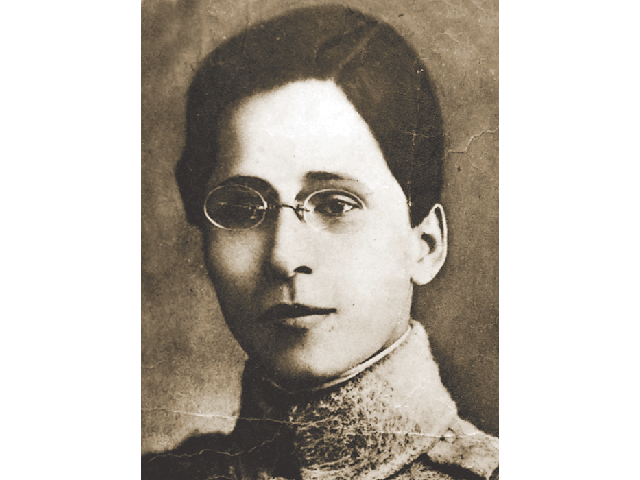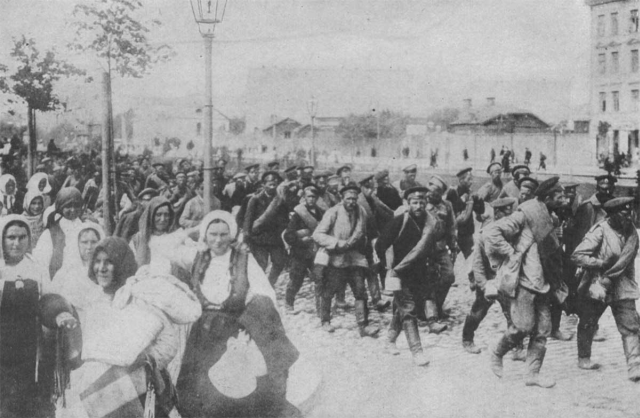Ecaterina Teodoroiu is known in Romanian history books as one of the symbols of World War I. However, not many people in Romania today know that she was the first and only woman fighting in the Romanian Army in 1916 and 1917. We asked Valentin Patrascu, the curator of the Ecaterina Teodoroiu Memorial House, to tell us more about this woman born on January 14, 1894 near the town of Targu Jiu:
Valentin Patrascu: “Ecaterina Teodoroiu was born into a rather modest peasant family in Gorj County. She was the third of the eight children of Vasile and Elena Teodoroiu, who lived in the village of Vadeni, next to Targu Jiu, today a district in this town. According to her primary school teacher, as a teenager she was very interested in history, and she wanted to study and become a teacher herself. After finishing primary school in her home village, Ecaterina Teodoroiu went to school in Targu Jiu and later in Bucharest. She wanted very much to go to the Gheorghe Lazar High School, but we have no evidence that she actually studied there. We do know that she attended a nurse school in Bucharest, sometime between 1909 and 1916.
While in Bucharest, Ecaterina Teodoroiu joined a reconnaissance unit called The Shepherd Bucur under the command of Arethia Pitesteanu, the future wife of the politician Gheorghe Tatarescu. This was a special unit providing military training for young women. When Romania joined the war in August 1916, Ecaterina was in Targu Jiu, in a unit that provided supplies to the troops, as well as medical assistance and evacuation. She first saw action in October 1916, when she joined the civilians defending the bridge over the Jiu River against the German troops. Within a month, she decided to join the Romanian army as a volunteer.
Valentin Patrascu: “In November 1916, Ecaterina decided to join the Romanian troops as volunteer. She made the decision after her brother Nicolae had been killed in the battle for the Jiu Valley on November 1st. So it was at a time when the Romanian army was retreating that Ecaterina joined the very unit where her brother served. She fought alongside the Romanian troops while they were withdrawing towards Craiova, in the south of the country. She was wounded in the hip during the battle of Filiasi and had to recover in Bucharest and then in Iasi, after Bucharest had been occupied by the Central Powers in December 1916. In January 1917, Ecaterina Teodoroiu requested to join the troops again and fight with the Romanian troops in Moldavia.
The Romanian army commanders were reluctant from the very beginning to accept a woman among their ranks, and now that she was injured, they tried even harder to persuade her to stay behind the front line when she recovered. However, all their efforts were to no avail. Instead, she was promoted to the rank of non-commissioned officer and joined the troops fighting in the battle of Muncel.
Valentin Patrascu: “On August 22nd 1917 the Second Battalion, which she was part of, was deployed to the frontline. She anticipated a German attack against the unit she commanded and ordered her troops to get out of the trenches and launch a pre-emptive strike. It was during this action that she was hit in the chest by two bullets fired by the Germans. Thats how she died.
Shortly after her death, the newspapers of the time dubbed her “the hero on the Jiu and the authorities built the first statue to her memory in Targu Jiu in 1921. The myth that was born even survived the communist regime. Her surname was even changed from Toderoiu to Teodoroiu, which was considered more resounding and better fitting to her legendary status.

